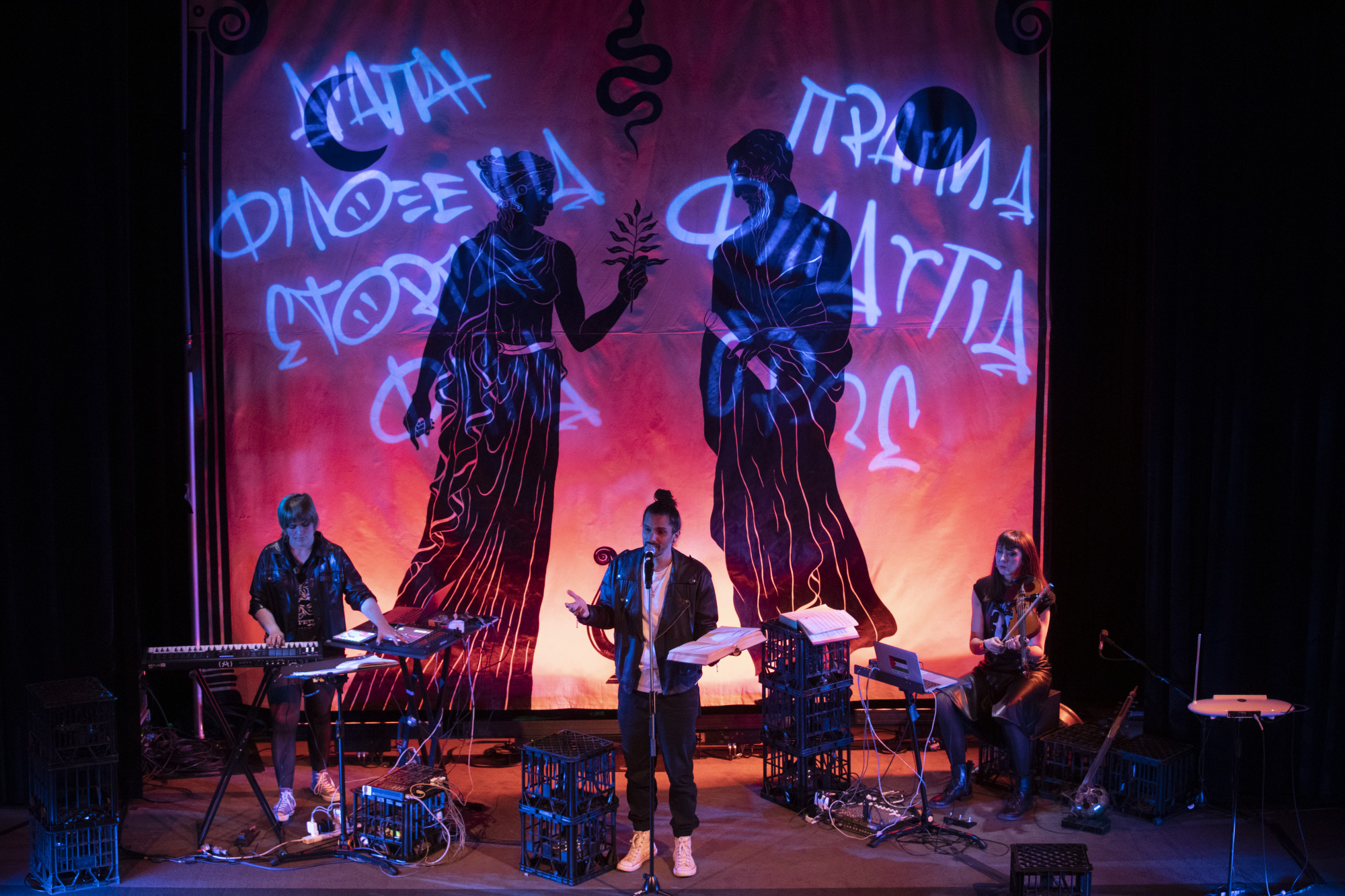Co-directed by Luka Lesson and Sam Foster, and produced by Vyvienne Abla, Agapi and Other Kinds of Love, is an ambitious exploration of love’s multifaceted nature, intricately woven through the mediums of rap, spoken word, and live music. Performed at Riverside Theatres, Lesson drew inspiration from his travels to Greece and the narrative of Plato’s The Symposium, ultimately embarking on a transformative journey to decipher the complex tapestry of love as understood by the ancients, and ever-so resonant in the modern world.
The performance commences with a dialogue between Socrates and his enigmatic lover Diotima, effectively setting the stage for a voyage through time. From an ancient banquet to contemporary Athens where reincarnated lovers find each other amidst chaos, a poignant reminder is evoked, love was, and still is a force that transcends the boundaries of time and space.
The narrative seamlessly integrates various Greek concepts of love, including Eros (romantic love), Filia (affectionate love), Filoxenia (love of a stranger), Philautia (self-love), Storgi (familial love), Pragma (enduring love), culminating with Agapi (selfless/unconditional love). Distinct forms of love, yet they are brought to life through vivacious characters and scenarios, from the intimate moments between Sophia and Pavlos to the critique of contemporary societal issues, such as the rise of Neo-Nazism.
Lesson’s fusion of rap and spoken word reignites the timeless tenets of Greek philosophy, proving that ancient wisdom can find a compelling voice in experimental formats. The merging of past and present during the climax not only underscores the timeless relevance of these love stories but also conveyed Lesson’s prowess in adapting classical storytelling and repackaging it for contemporary audiences.
Accompanying musicians, Mae Lin and Greta Kelly, alongside a score by composer James Humberstone, evoke the spirit of the Muses, adding a layer of mythical authenticity to the performance. Ambient sounds of the theremin play with Lesson’s dynamic rapping, creating a striking contrast that elevates the narrative and its profound messages, while Laura Jade’s lighting and stage effects contributed to the emotional depth of the narrative. Interactive engagement through a collective humming was a welcome addition and heightened the immersive experience. In turn, the atmosphere felt both intimate and universal, and spoke to the complexities of love across forms.
All throughout, Lesson provided concrete insights into the fluidity of love, in particular, the importance of self-love as a “dying art.” The closing lines, “with Agapi, love becomes reality,” aptly encapsulated the essence of the show, presenting a heartfelt declaration that love, in its most selfless form, endures because of its power to transcend barriers and remain a tangible force.





